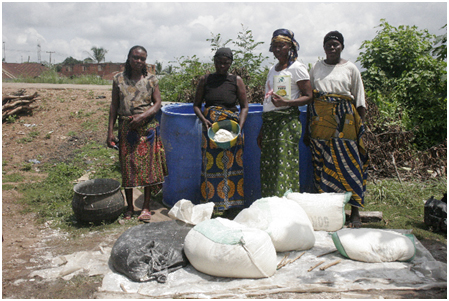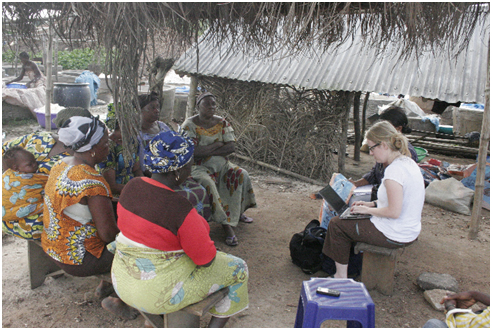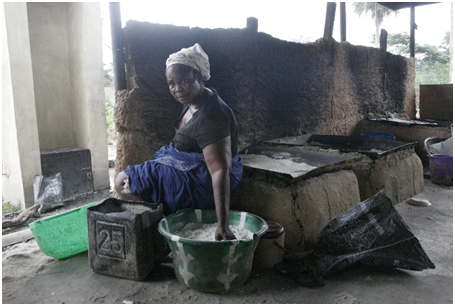NRI is pleased to support the International Women's Day Centenary to celebrate women's economic, political and social achievements around the world.
This year's theme, decent work for women, focuses on equal access to education, training and science and technology, of which agriculture is a vital part. Yesterday, with the release of the State of Food and Agriculture Report 2010-2011, the FAO stated that equal access to land, technology, financial services, education and markets for women would increase agricultural production and reduce the number of hungry people by 100-150 million.
 Gender equality has been a core commitment of NRI through its work in sustainable management of natural and human resources in developing countries. With a long history of using participatory community engagement methods, NRI strives to develop gender-appropriate and effective programs and research, matching approaches and technologies to the social, cultural and economic circumstances of men and women.
Gender equality has been a core commitment of NRI through its work in sustainable management of natural and human resources in developing countries. With a long history of using participatory community engagement methods, NRI strives to develop gender-appropriate and effective programs and research, matching approaches and technologies to the social, cultural and economic circumstances of men and women.
The Cassava: Adding Value for Africa (C:AVA) project, operating in five sub-Saharan Africa countries to develop value chains for High Quality Cassava flour (HQCF) and related products, adopts such an approach. The aim is to emphasize equitable distribution of benefits, participation and the empowerment of women and disadvantaged groups in project activities, with an aim to understand and address inequalities and different needs along the cassava value chain according to gender and other diversity factors such as age, marital status, ethnicity, etc.
 In recent field work in Nigeria, the first country where C:AVA was implemented, women farmers and processors were consulted on the changes that occurred since the project started. Women reported that training they received in cassava production, particularly in the application of herbicides, reduced the amount of weeds on cassava farms and subsequently their time spent weeding. Higher cassava yields were also reported to have contributed to an increase in the quantity of processed cassava products they sold (including their traditional products of gari and fufu), and subsequently increasing their profits. In addition, training in hygienic processing methods had attracted more customers to due to the improved quality of their products. NRI, it national lead partner the University of Agriculture, Abeokuta (UNAAB) and other partners hope to continue to make improvements to women's livelihoods through the project by focusing on building capacity of women's groups and encouraging investment to help safeguard women's control over income and savings.
In recent field work in Nigeria, the first country where C:AVA was implemented, women farmers and processors were consulted on the changes that occurred since the project started. Women reported that training they received in cassava production, particularly in the application of herbicides, reduced the amount of weeds on cassava farms and subsequently their time spent weeding. Higher cassava yields were also reported to have contributed to an increase in the quantity of processed cassava products they sold (including their traditional products of gari and fufu), and subsequently increasing their profits. In addition, training in hygienic processing methods had attracted more customers to due to the improved quality of their products. NRI, it national lead partner the University of Agriculture, Abeokuta (UNAAB) and other partners hope to continue to make improvements to women's livelihoods through the project by focusing on building capacity of women's groups and encouraging investment to help safeguard women's control over income and savings.
For more information on this project, please visit the C:AVA website: http://cava.nri.org/


